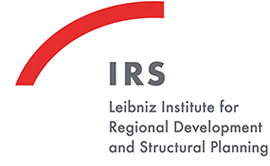Hauptinhalt
Mediatisation, Visualisation and Participation in Urban Planning
Theoretical Approaches and Methodological Challenges

It belongs to the central narratives of postmodern societies that information and communication technologies play a key role in all areas of social life. Digital and other types of media have not only changed our communicative activities but in a certain way also percolated to the smallest ramifications of everyday practices. Hence, these developments are interdisciplinary conceptualised and described as “mediatisation” relating shifts of communication and technology with changes of culture and society. The workshop refers to the still polysemous concept of “mediatisation” (i.e. Krotz 2009, Lundby 2009, Hepp 2012, Hjavard 2013) and asks for its general meaning and its special relevance for investigating and understanding urban planning practices.Actually, planning processes in urban development are highly “mediatised” and especially visual forms of representation are increasingly meaningful and relevant. Obviously, planning processes and new media influence each other. On the one hand, planners deploy media purposefully. On the other hand, new technologies shape communication processes as (e)participation in such a profound manner that an inquiry into the way in which mediatisation affects planning processes is strongly warranted. For instance, how does online participation in planning change society’s view on planning? How mediatisation does take effect on the communicative construction of public spheres? In what sense do new technologies affect the planning of spatial design of cities? And is it possible to derive lessons from previous mediatisation processes in historical urban planning for contemporary urban planning? Apparently, these questions cover an emerging field which makes it necessary to open up a panel to broadly discuss theoretical approaches and methodological challenges regarding the investigation of the influence of mediatisation on urban planning, (e)participation and the construction of public sphere(s) as well as the communicative processes of knowledge construction by using various technologies and types of visualisation. The workshop pursues the goal of bringing together scientists from different disciplines – connecting historical, planning-scientific and sociological perspectives – in order to have an intensive and creative exchange of expertise. Within three sessions we want to discuss a) from a historical perspective the impact of specific media on public debates in relation between planning, media and the urban public spheres in the course of the 20th century, b) from a sociological perspective the communicative forms of planning and participation as well as the impact of mediatisation on public sphere and c) from a planning science perspective the strategies and tactics of mediatisation in urban development processes.We follow the thesis that ambivalences of mediatisation are to be recognised in a sense that practical and technical accelerations of planning and building are in a contradictory relation to decelerated public participatory processes. However, it is still unclear to what extent the digital formats of citizen participation gain momenta of acceleration and what qualitative consequences this has for communicative processes of spatial planning and design. These sensitizing questions will be used to investigate urban planning in the area of large-scale planning to smaller neighborhood planning processes. We also use a comprehensive concept of planning which includes both state planning projects from top down and collaborative projects in which planning activities are understood as the moderation of public processes. The workshop is organised in the context of the research project “Mediatisation processes in urban planning and changes in the public sphere.” (MedPlan 2017-2020), funded by the Leibniz Association and in cooperation with the Collaborative Research Centre “Re-figuration of Spaces” (TU Berlin), funded by the German Research Foundation (DFG).
Sessions
Session 1
Mediatisation of Planning and the Urban Public Sphere in Historical Perspective
Exhibitions, plans, journals or radio programs are traditional media which strongly shaped - and still shape - strategies and public perceptions of planning. What has rarely been analysed in detail up to now are the strategies of mediatisation, visualisation and objectives of planners and public actors in processes of public presentations of planning as well as their effects on patterns of participation. From a conceptual and a methodological perspective, we want to address the impact of specific media and their visualisations on public debates, in historically relevant empirical cases of urban public debates and in reflections on the turning points in the relation between planning, media and the urban public sphere in the course of the 20th century.
Session 2
(E)Participation and Visualisation. Consequences for Collaborative Planning Practices and the Public Sphere
On a broad societal level and in particular in architecture and urban planning, technically-produced visualisations have become increasingly important for communication. Visualisations in the sense of plans, maps or 3D models are rather assumed to have evidence that stabilises the communicative processes in urban planning between citizens, planners and political actors and at the same time absorb “uncertainties”. However, less is known about both the concrete and situated use of planning visualisations, its embeddedness in communicative actions and the necessity of visual knowledge. The session works on methodological questions from a sociological and an urban planning perspective. It will be sought for the possibilities and limits of visual representations, and for their meaning for (digital) participation and planning processes. Finally, it is of interest how to methodically examine visualisations and how to analyse their situated use within communicative actions?
Session 3
Monitoring and Imaging: Forms of Digital Planning in the Present and their Consequences for Inclusive and Integrative Urban Design
Digital media are reshaping fundamentally the ways in which urban planning is communicated between planning professionals and between them and governmental institutions, experts and laypeople. The city is monitored, controlled and interpreted and the future city is projected, visualised and advocated by various, often conflicting, stakeholders. Especially new forms of digital communication and visualisation like in social media constantly co-produce the urban publicly. Yet, the public sphere is increasingly subdivided into sub- and counter-publics with contradicting interpretations of the urban. This is most obvious in the Global South, where prestigious state planning projects and the urban reality are often strikingly incongruent. Strategies and tactics of mediatisation and visualisation in urban development processes will be discussed focusing on conceptual approaches and methodological challenges of research in a political affected context.




